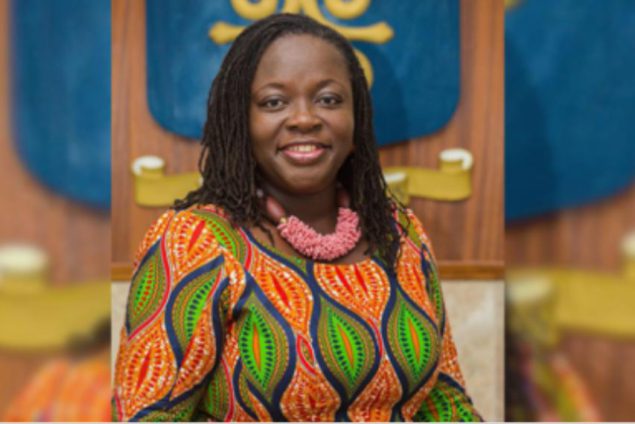
The University of Ghana’s Centre for Gender Studies and Advocacy (CEGENSA), in partnership with the United Nations Populations Fund (UNFPA), Ghana has celebrated the 2022 International Women’s Day with a two-day webinar series, on breaking the bias towards a flourishing academic career, inspiring leadership, and intellectual activism.
In her opening remarks, the Vice-Chancellor, Professor Nana Aba Appiah Amfo, noted that the CEGENSA-UNFPA webinar is in line with one of the key strategic priorities of the University of Ghana-on Gender and Diversity, which aims to create a just and equal teaching, learning, and work environment for all members of the University community.
Professor Amfo indicated that “the University of Ghana is determined to break every gender bias within its community, and in a sustainable manner, we shall not rest on our oars just because we have all-female principal officeholders. We shall continue to work at ensuring that this historic feat trickles down to inspire, guide, and create more opportunities for females within the University community”. She hoped that the webinar series would ignite some latent intellectual and leadership potentials in many of the participants and empower many to rise above any professional challenges at their respective levels.
Mr. Niyi Ojuolape, Resident Representative, UNFPA, in brief remarks indicated UNFPA’s excitement to partner with CEGENSA to work together to promote gender equality and empowerment in higher education institutions and in the nation. Mr. Ojuolape believes that the mutual agenda of the two institutions will build the capacity of women to take up more leadership roles at various levels in the country. Prof. Akosua Adomako Ampofo, former Director of the Institute of African Studies and a founding Director of CEGENSA took the first turn in the conversation. Reflecting on her academic journey, Professor Akosua Adomako Ampofo stressed the importance of caring about others and recognizing the humanity in them because we that we are all affected by what happens to others. She also exhorted female academics not to work in silos. ‘You don’t survive in the Academy if you try to do it all on your own’, she said.
She believes it is difficult to become a seasoned academic of you work alone, besides the fact that it will be a lonely journey. Professor Adomako Ampofo thinks female academics must be kind to themselves and create time to rest and do some fun activities. Prof. Ampofo who is also the lead researcher and producer of the documentary, ‘When Women Speak’, threw light on the 60seconds snippet of the documentary shown during the webinar.
Professor Esther Sakyi-Dawson of the Department of Nutrition and Food Science, and a Former Director of, Academic Quality Assurance Unit, who was interviewed on the second day addressed the topic, ‘Defying Gender Bias: Pathways to Becoming a Flourishing Academic’. She stated it was necessary for women and academics to build social networks. “As an academic, it is crucial to develop networks since having works and publications without acknowledgment is not enough to make an impact”, she said. Prof. Sakyi-Dawson encouraged women to feel proud of themselves and never to see the female gender as a hindrance to greatness and success. She said, “Your comfort zone restricts you, so you need to do better and try. Be intentional about trying”.
Professor Daniel Frimpong Ofori, Provost of the College of Humanities in his remarks acknowledged the biases against women and exhorted women academics on staying motivated and taking advantage of the existing possibilities to enable them to flourish.
In her concluding address, Dr. Deborah Atobrah, Director, CEGENSA, indicated that the Center is keenly interested in the mentoring and professional development of early and mid-career academics, for which it had put the webinar series together. She expressed appreciation to the University management, UNFPA, and all participants who had joined in from Europe, the United States of America, other parts of Africa, and locally. She was hopeful that the webinar series had achieved its aim of inspiring more women to accomplish greater heights.
History of CEGENSA
CEGENSA was set up by the Council of the University of Ghana in 2005 and launched in March 2006. The Centre’s vision is to be a place of choice for accessing innovative and creative programs and policies which are committed to ensuring that gender equity is enshrined in all aspects of the institutional and intellectual culture of the University and in Ghanaian society.
CEGENSA carries out these functions: institutionalize gender as a legitimate business of the University; promote research on gender-related issues; provide documentation on, and dissemination of, gender-related research; provide services and facilities to meet some of the unique needs of female staff and students; promote advocacy and initiate policies on gender in the University; generate linkages with, and provide extension work on, gender with key stakeholders in government, NGOs, civil society and the donor community.
Source: Ghana/Starrfm.com.gh

